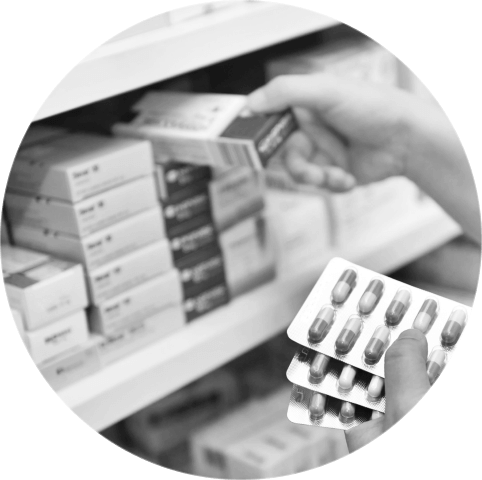This section of our website is intended for healthcare professional
Do you work in healthcare?Dexatin (dexamfetamine)
Dexatin 5, 10 & 20 mg tablet
treatment option for ADHD in children and adolescents
Dexamfetamine is indicated as part of a comprehensive treatment program for attention- deficit/hyperactivity disorder (ADHD) in children and adolescents aged 6 to 17 years when response to previous methylphenidate treatment is considered clinically inadequate*.
Addictive agent; use extreme caution when prescribing this medicine.
Treatment should be initiated and monitored by a specialist in child and adolescent psychiatry or pediatric and adolescent medicine.
Form and strengths:
-
5 mg tablet: Divisible into four parts, embossed with "S"
-
10 mg tablet: Divisible into four parts, embossed with "M"
-
20 mg tablet: Divisible into four parts, embossed with "L"
VNR:
-
128642 - 30 tablets, 5 mg
-
443908 - 100 tablets, 5 mg
-
144142- 50 tablets, 10 mg
-
453832 - 30 tablets, 20 mg
Dexatin is a prescription medicine and should only be used as prescribed by a doctor.
Do you want to know more about Dexatin? Please contact us below!
Training materials
Sweden:
Training material:Guide for healthcare providers
Training material:Guide for health professionals
Norway
Training material: Veiledning for omsorgspersoner
Training material: Veiledning for helsepersonell
Denmark
Training material: Guide to carers Dexatin DK
Training material: Guide to healthcare professionals Dexatin
Attadex
Finland
Training material: Guide to carers Attadex
Training material: Guide to healthcare professionals Attadex
Training material: Guide to carers Attadex FI
Training material: Guide to healthcare professionals Attadex FI
Abbreviated product information
Dexatin 5, 10 & 20 mg tablet (dexamfetamine) Addictive substances. Use extreme caution when prescribing this medicine. Psychostimulants, ADHD agents and nootropics, centrally acting sympathomimetics ATC code: N06BA0. Rx, (F) Subsidized only when response to previous treatment with methylphenidate is deemed clinically inadequate. Indications: Intended for children and adolescents aged 6 to 17 years as part of a comprehensive treatment program adapted for ADHD when response to previous treatment with methylphenidate is considered clinically inadequate. Contraindications: Hypersensitivity to the active substance, any excipient or sympathomimetic amines. Glaucoma, pheochromocytoma, cardiovascular diseases, concomitant use of MAO inhibitors or within 14 days of treatment. Hyperthyroidism or thyrotoxicosis, major depression, anorexic disorders, hyperexcitability, suicidal ideation, psychotic symptoms, severe and episodic bipolar disorder, schizophrenia, personality disorder, Tourette's syndrome, cerebrovascular diseases, porphyria, or history of drug or alcohol abuse. Warnings and precautions: Treatment should be reassessed regularly. Careful monitoring during discontinuation. Prescribed at the lowest possible dose due to risk of overdose. Monitor patients closely for risk of diversion/misuse and abuse. Monitor cardiovascular status closely, thorough history and physical examination should be performed to assess for cardiac disease. Sudden death has been reported in association with CNS stimulants at normal doses in children. Use caution in mental illness and aggressive or hostile behavior. Moderate impairment of weight gain and growth retardation have been reported with long-term treatment and the effects on final height and weight are not yet known. Should be used with caution in patients with epilepsy as the seizure threshold may be lowered. Patients with fructose intolerance should not take Dexatin. Dexatin may have a moderate effect on the ability to drive and use machines. For further information and prices, see www.fass.se. Based on SmPC approved 2024-08-13. For questions or reporting of side effects or complaints - contact regulatory@frostpharma.com. FrostPharma AB, www.frostpharma.com.
